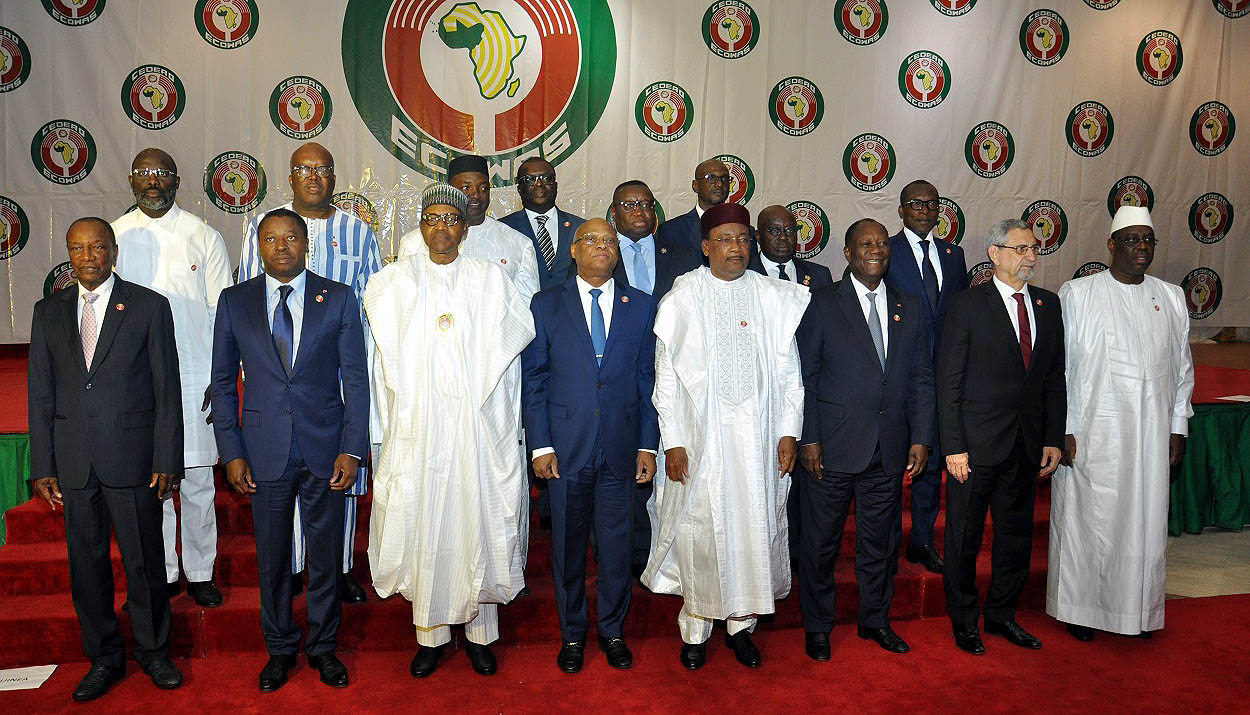Francophone West African countries have decided to rename their common currency CFA franc as the Eco. Côte d’Ivoire’s President Alassane Ouattara announced the decision during a press conference with French President Emmanuel Macron in Abidjan on 23 December, showing that it was a decision jointly reached with France.
The currency is used by Benin, Burkina Faso, Guinea Bissau, Côte d’Ivoire, Mali, Niger, Senegal and Togo – all former French colonies except Guinea Bissau.
As part of the decision, the Eco will remain pegged to the euro (currently at the fixed rate of 1 euro to 656 CFA francs) but the 8-country bloc won’t have to keep 50% of their foreign reserves in the French Treasury.
“This is a historic day for West Africa,” Ouattara said as the decision changes the fiscal relationship of the region with France for the first time since the CFA Franc was introduced after World War II, a relationship critics have labelled neo-colonialism.
The six countries using the Central African CFA – Cameroon, Chad, Central African Republic, Congo Republic, Equatorial Guinea and Gabon (all former French colonies with the exception of Equatorial Guinea), are not affected by the changes.
The announcement of the beginning of decoupling the CFA francs from France follows talks in Nigeria’s capital Abuja on 21 December among leaders of the 15-nation Economic Community of West African States (Ecowas) on the creation of a common currency for the region.

Countries in the CFA bloc and other West African nations such as Nigeria and Ghana have for decades debated creating their own currency to promote regional trade and investment. And the Eco is the proposed name for the common currency that the West African Monetary Zone plans to introduce in the framework of Ecowas.
Analysts see the decision of the CFA bloc to rename the CFA francs as the Eco as a possible precursor to the introduction of the all-West African common currency. However, for the Eco to be implemented, ten convergence criteria, set out by the West African Monetary Institute must be met.
These criteria are divided into four primary and six secondary criteria.
The four primary criteria to be achieved by each member country are:
- A single-digit inflation rate at the end of each year
- A fiscal deficit of no more than 4% of the GDP
- A central bank deficit-financing of no more than 10% of the previous year’s tax revenues
- Gross external reserves that can give import cover for a minimum of three months.
The six secondary criteria to be achieved by each member country are:
- Prohibition of new domestic default payments and liquidation of existing ones.
- Tax revenue should be equal to or greater than 20 percent of the GDP.
- Wage bill to tax revenue equal to or less than 35 percent.
- Public investment to tax revenue equal to or greater than 20 percent.
- A stable real exchange rate.
- A positive real interest rate.
None of the Ecowas countries has met all the criteria in recent years.
Kola Tella
 THE AFRICAN COURIER. Reporting Africa and its Diaspora! The African Courier is an international magazine published in Germany to report on Africa and the Diaspora African experience. The first issue of the bimonthly magazine appeared on the newsstands on 15 February 1998. The African Courier is a communication forum for European-African political, economic and cultural exchanges, and a voice for Africa in Europe.
THE AFRICAN COURIER. Reporting Africa and its Diaspora! The African Courier is an international magazine published in Germany to report on Africa and the Diaspora African experience. The first issue of the bimonthly magazine appeared on the newsstands on 15 February 1998. The African Courier is a communication forum for European-African political, economic and cultural exchanges, and a voice for Africa in Europe.


























